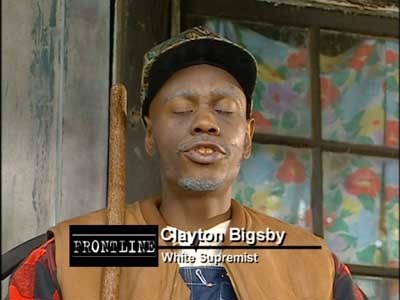It’s taken me a while to write this review of Gary Younge’s
book ‘No Place Like Home: A Black Briton’s Journey Through the American South’ largely
because of other obligations and, admittedly, forgetfulness. Since finishing
this book I just needed to write a review, and have been sitting on this for a
few weeks now.
The book focuses largely on the journey of the Freedom
Riders, a group of black and white activists who decided to challenge a
decision by the United States Supreme Court. Despite the decision, that stated
public buses were no longer segregated, the law remained unenforced in most
states, especially in the Deep South. A group of black and white activists decided
to challenge this non-enforcement by embarking on a journey, via public bus,
through the Deep South. They refused to “correctly” use segregated facilities,
from the seating areas to the facilities in bus stations. The reaction they
received was beyond anything they could have imagined. They were mobbed, violently
beaten, hospitalised, their buses were set on fire and eventually they were arrested.
Journalist Gary Younge decided, 36 years later, to retrace
their route, visiting key sights and interviewing a variety of people along the
way. More than just a simple historio-travelogue, ‘No Place Like Home’ has entrenched
within its pages a political polemic about racist practices today in both
America and Britain.
Younge was born in Stevenage, Hertfordshire, to Barbadian
parents, and grew up in the care of his mother, who instilled in him a deep
sense of racial identity. Younge devotes his opening chapter detailing his own
upbringing right up to an incident on a bus in Brighton, where, as part of a
group of black youth visiting Brighton, his bus was attacked by skinheads. As
he decides to embark on his own Freedom Ride, he recalls this memory that had
been previous buried deep in his memory.
This
mini-autobiography prefacing the rest of the book isn’t mere indulgence on
Younge’s part. Not only
does it allow us to see what sparked Younge’s interest
in the Freedom Riders, it also gives us an idea of British racism, as the book
uses America and the Freedom Riders not just to polemicize against American
society, but towards Britain as well. My favourite quote happens very early on,
when he notes why race is such an issue in America and seemingly non-existent
in Britain (by that I mean, not really outwardly spoken about):
“In
Britain you are encouraged to keep your racial identity under lock and key; in
America you are a slave to it”
In Britain, we don’t talk about it. A colleague describing
Younge would use every word except “black”. In America, meanwhile, McDonalds
post adverts in African-American magazines promoting the contributions of its
black workers.
The problem of this sense of “lacking” in Britain is that
you feel like you have this big secret, and whenever you mention the topic of
race you’re “bringing up the race thing” you’re “forcing it down their throats”.
This doesn’t mean America is so liberal in its attitude. In America, your race
defines you; segregation occurs on a much larger scale than in Britain. You are
told “you are black, here is where you live, this is where you work and this is
what you like”.
Amongst many things, Younge’s
book really helped me verbalise my thoughts on the Trayvon-Zimmerman trial.
Many people around me acted as if the shooting of an unarmed person of colour and the acquittal of the
murderer could only happen in America. I actually wrote an article entitled “The
British Trayvon Martin: Muhammed Asghar”. This was a similar case, where a man
clearly in the wrong was acquitted with murder on “self-defence” grounds. Click
the link if you wish to find out more.
The question of black people in
Britain appeals to me in particular, as in Britain, my race does feel a bit like
a secret. I am white in appearance, and when I tell people I’m mixed race they
are just startled and avoid asking the question that’s burning in their minds: “why
do you look so white then?”. Younge’s book got me thinking, what would it be
like if I was American? Would I be able to openly say “I’m mixed race” without
feeling like I’m “shoving it down people’s throats”? Would I be able to
comfortably delve into black history and reggae music without people accusing
me of acting something they insist I am not? What would be the price of this
apparent “freedom”?
‘No Place Like Home’ provided me
with a thoroughly intriguing and entertaining read, and certain phrases and occurrences
will remain ingrained on my memory for a long time. Still, a few weeks after
reading it, I find myself asking questions and debating internally some of the
arguments Younge presents. Finally, if you are looking for something to
compliment the book, I recommend the documentary “Freedom Riders” on the PBS
website (possibly could be found elsewhere). I think it’s important to have a
visual representation of events, and the documentary certainly does this with
interviews and pictures.
-Khia Reynolds




